Are you talented enough to chase your artistic dreams? Absolutely. In this article, I’ll like to share with you 3 truths that will build your confidence that you have enough talent to begin right where you stand.
But first, a little preface.
It was summertime in the 90s. I lived in a small rural town, school was out, and for 3 months we had to find our own ways to occupy our time. My friends and I decided to make a movie. We donned the camcorder from my parents’ closet and got to work writing a script.
I can’t speak for my friends – maybe they just wanted to do it for fun. But to me, this was serious business. I had a grand vision. It was to be an epic production; a hollywood grade spy flick featuring an evil plot, a mad genius, espionage in the name of the greater good, and intense action sequences. As we started writing our script, I started to face an awful realization: this movie isn’t going to be any good. We were kids. None of us knew how to do wicked special effects or stunts. Surely nobody would want to watch a movie with kids trying to act like they were adults. We couldn’t even drive cars. What kind of spy movie doesn’t have cars? Maybe we weren’t capable or talented enough to make something as awesome as what I was aspiring to. In short, my little friends and I simply weren’t talented enough to do a good job.

Unfinished Business
That movie never got made. The camcorder went back in the closet and we never filmed a single scene. We probably just spent the summer playing Sonic the Hedgehog instead. In hindsight I can guarantee you that I was actually right – had we followed through on our little home movie it would not have measured up to the status of a Hollywood blockbuster. But in another important sense I was dead wrong.
Had we finished, it would have been at least something.
It would have been a cherished memory, something to look back at to remember that time of our lives. It would have been a milestone in my own personal creativity, something to compare my future visual storytelling to to remember my own humble beginning and how far I’ve come. I could have had something funny to share on Facebook a decade or two later. It would have been good enough for where I was in my creative journey at the time.
Turns out that I was talented enough to make it exactly as it needed to be after all.
The Chasm

As creatives, many of us sabotage ourselves the same way I sabotaged the home movie I wanted to make. This article is for the dreamers. If you have big aspirations you wonder if you can live up to, I wrote this for you.
Are you looking tentatively across the open chasm between yourself and the role models you seek to someday emulate? If so read carefully.
I totally get it; that chasm can look treacherous. Surely those who have gone before had some kind of magical ability that allowed them to get across unscathed to where they are now. We may begin to reason that they were born with some kind of artistic superpower, one that we ourselves were not fortunate enough to receive. Maybe they simply flew over all the perils faced by “normal” people. Maybe they even simply teleported themselves to where they are now. That “superpower” we sometimes mistakenly find ourselves believing in is often called talent, and it’s easy to come to the conclusion that other more successful people have it and we simply don’t.
Looking up to skilled and seasoned creators can often be inspiring. It can give us goals and a high standard to strive to measure up to. Sometimes, though, when we focus on how far we have to go it’s easy to become discouraged with where we are in the now. Looking across that perilous gap, we may find ourselves thinking, “I could never get to that point. Am I even talented enough?”

The answer is yes!
You’ve got the perfect amount of talent to start where you are. Worrying endlessly about how much talent you have based on a comparison to somebody else isn’t fair. It wastes precious time and energy and squanders unrealized potential. It can motivate you to do things solely in the misguided pursuit of fleeting, short-term validation. You may even find that it causes you to give up entirely, burning bridges to potential success that can only be reached by determined, consistent work.
Never fall prey to the illusion that if someone is better than you at something, that it’s just because they were blessed with more talent at birth.

Every person that sets out to create, regardless of how far they’ve come and how far they have yet to go, must always start every day with the talent and skill they have in the present moment. How could it be any other way? With a slight change in mindset, you can learn to stop worrying about whether you are or are not talented enough and instead put that energy toward improving your skill and creating your best work.
Do not wait passively for the gift of talent to show up at your front door wrapped in a fancy ribbon. Take heart and get started from where you are.
Truth #1: Skill and Recognition Comes With Work

Among painters there are not many more well known than Pablo Picasso. Many consider him a prodigy. After all, he started making art at a very young age and reached levels of success and fame during his lifetime that very few artists could ever dream of. But to think that any talent he was born with was the central factor in his success would be mistaken.
With his father as his teacher, Picasso began studying art formally at the age of 7, meaning that he was working hard at refining his craft much earlier in life than most. The real kicker, though, is that he produced tens of thousands of pieces of art during his lifetime. Who of us can say that we’ve made that much art? I can certainly say that I don’t come within even a tiny fraction. For every Guernica and Weeping Woman, there are thousands of others he produced that you’ve never even heard of. Those never reached anywhere near that level of recognition, and they are the vast majority of what he made.

It wasn’t that Picasso just happened to be talented enough to land in history books. His masterpieces were instead born of constant diligence. He said, “Inspiration does exist, but it must find you working.” He was right.
Talent doesn’t count for much at all if you never use or grow it. The world is full of washed up child prodigies that never grew up to make anything of note.
Truth #2: Great Art Is Not Magic
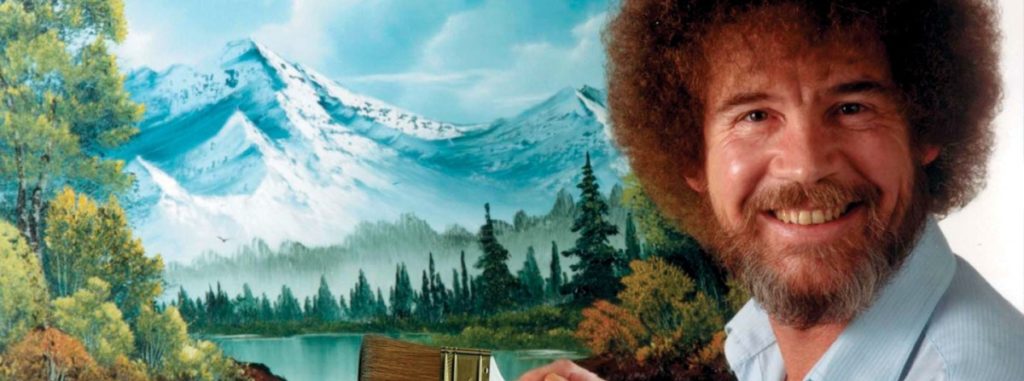
When looking at great art, we often only see the finished result. We may subconsciously believe that a brush was simply waved by the master like a magic wand, and, voila! A terrific painting. After all, art must be easy for super special artists, right? Even when we watch a master at work, we only see their current process. We don’t see all the ruined canvases that tried and refined the way they make art over years and years of hard work.
I can’t think of a person I know who doesn’t like Bob Ross at some level. Not only was he great at what he did, he managed to be possibly the most relaxing human being ever while he did it. He made it look so easy. It was almost as if he didn’t have to expend any effort at all. Ol’ Bob would just scrape some paint here and brush a little there and ta-da! Happy little trees would simply manifest themselves onto his canvas. There was a lot more to Bob and his process than meets the eye, though.

How Bob Ross Made Art Look Like Magic
Bob struggled for years to get his art business off the ground. He worked hard during this time and I can only imagine the amount of practice he had to refine his now famous process. For every episode of the show, he would actually do the same painting 3 times. The first one would be done before recording to keep off-camera for reference. He’d paint the second one while being filmed on set for us to enjoy. Then he’d always make a third version to top it all off, with more meticulous detail for use in his instructional books. Not only did he have more practice with each one than you might think, but when we watched him paint on PBS it wasn’t the first time he’d done that particular painting.
No wonder he made it look so easy! For Bob, it wasn’t magic, it was practice. “Talent is a pursued interest. Anything that you’re willing to practice, you can do.”
Bob Ross’s magic wasn’t about being talented enough. It was all about repetition, practice, and the willingness to put in the work.
Truth #3: You Are Talented Enough For Right Now
Take a look at a drawing that any 2 or 3 year old made. Art starts as random marks on a page and then, over a bit of time, morphs into sloppy, wonky stick figures. We all started out this way. Do you still have any of your drawings from that age? Look at your progression from then until now. What role has talent played, and what role has good old fashioned work played?
The times in my life where I’ve seen real improvement have been the times that I’ve been drawing consistently. We grow the most when we push ourselves to do at least a little every day and when we push ourselves to produce the best we are capable of at the time.

Talent Timelines
Talent is a timeline, starting when you were a toddler and stretching forward indefinitely. The end of that timeline that we strive for isn’t something we ever end up landing on, since as we get better our standards and aspirations become more ambitious. We raise the bar as we go. This means that we need to learn to find joy and fulfillment in the middle of that timeline.
If the only thing that will ever make you happy is finally reaching the very apex of your skill, or if you wait for that magical day to begin work on your best ideas, you may end up finding only disappointment later in life.
When you were a child drawing stick figures, you were talented enough to put forth your best effort, and by doing your best you got better.
Someday in the future you’ll have settled into a process and you’ll be creating the best work you’ve ever done, possibly making money all the while. When that time comes, your best will be enough as you continue to refine your work and grow your skills.
It’s the same right now. Your best is exactly what you need to do. It’s enough to take and move forward with. Be patient, work consistently and do your best. The joy of creativity can (and must) be found along the way.
Start With the Talent You Have
No matter where you are in your creative progression, be brave and start from where you stand right now. If you have that momentum going but aren’t making the big leaps and bounds you’d like to, be brave and keep going. As you embrace these truths, you’ll become more able to see the big picture in the accomplishments of others. Make the attempt to see your own past and future progression more clearly, and you’ll come to realize that the talent and skill you currently have is just enough to forge ahead. You will begin to see that you are indeed talented enough.
How have you persevered and kept making art during times when you’ve doubted your skill or talent? Let us all know in the comments below!
Want more? Join my email list to be notified first thing when I make a new post! You’ll also get access to my FREE 5-day video course that you won’t find anywhere else.
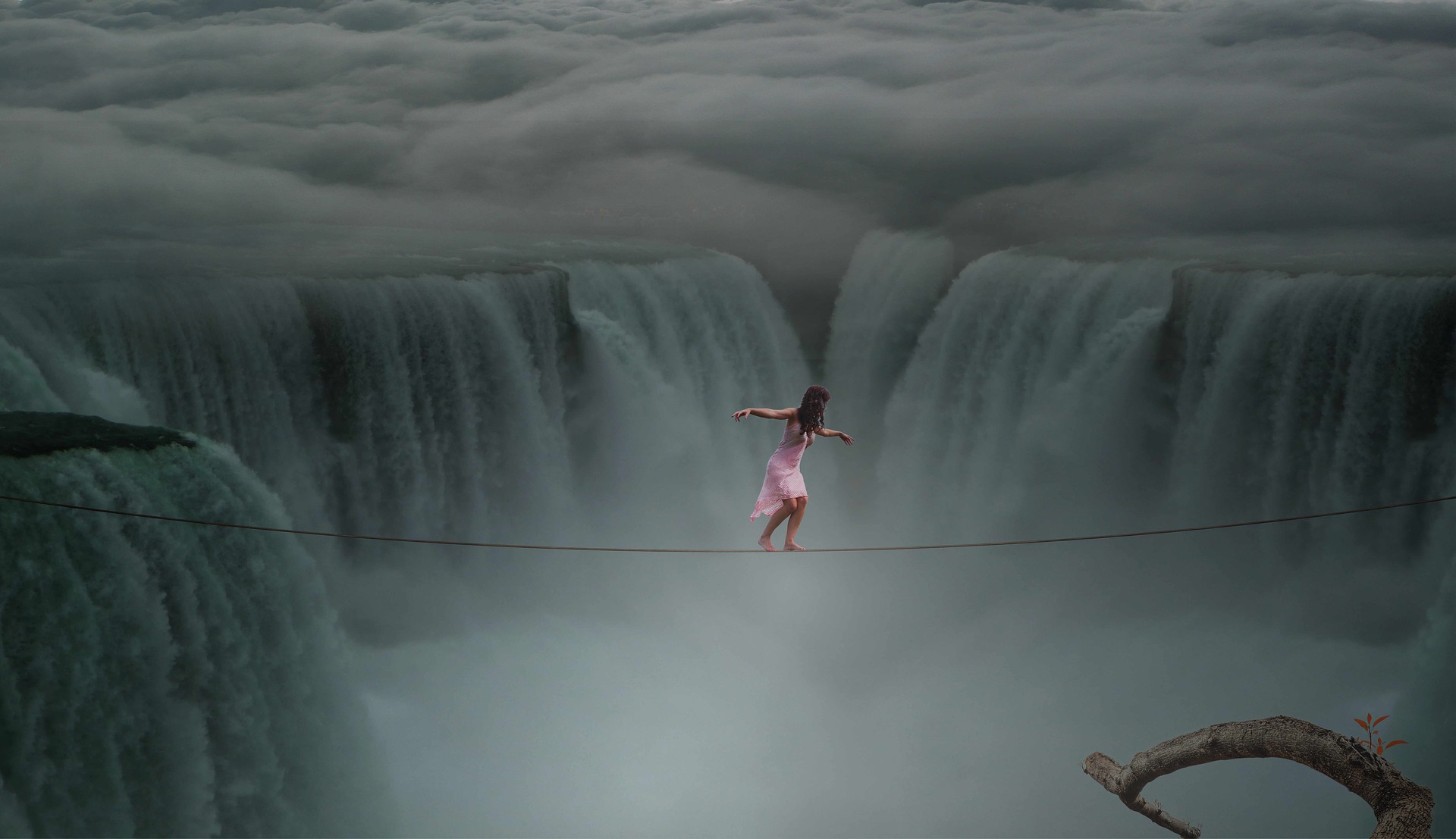
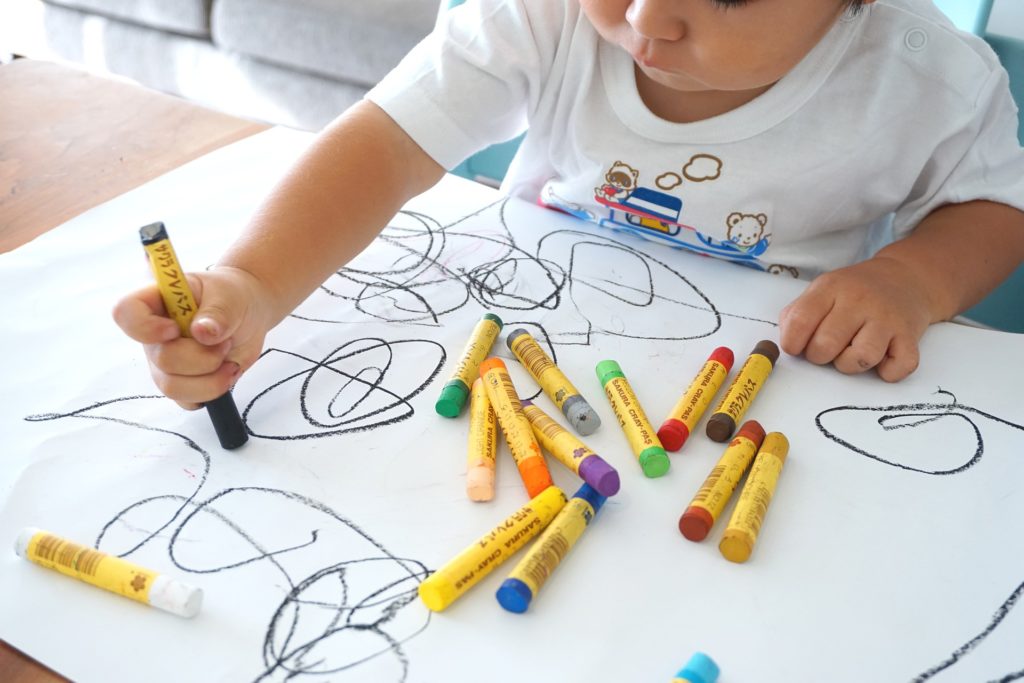
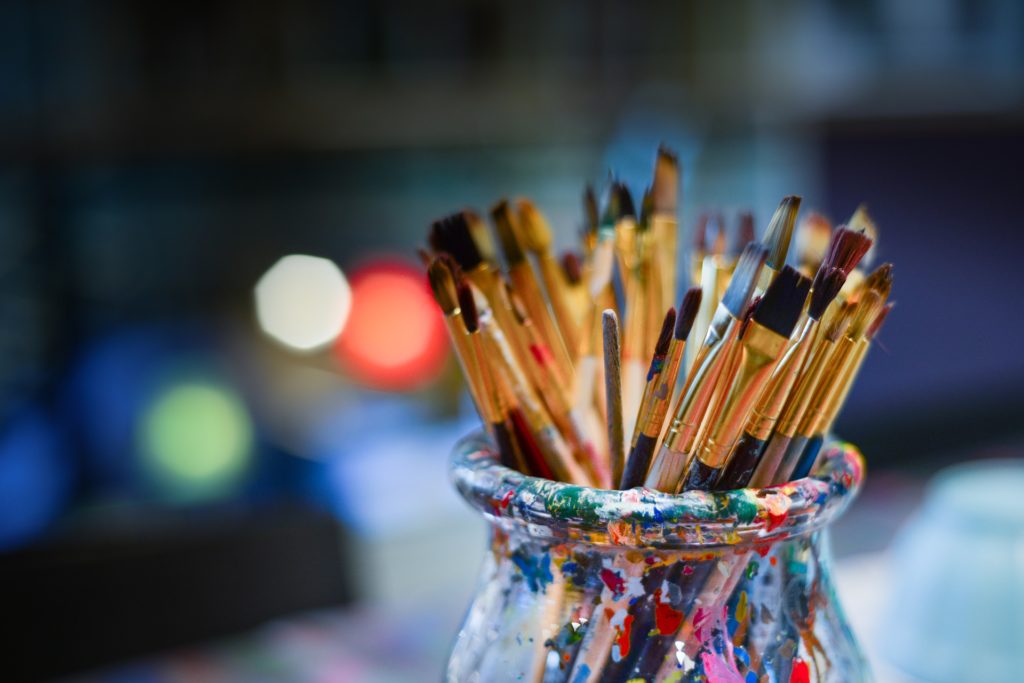
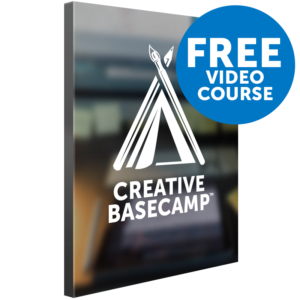
This is an awesome article. Thank you.
Thanks for the kind words, Jacqueline!Appreciate you stopping by and taking the time to read.
Hello again, Chey!
I’m currently in a similar situation, practice drawing and 3D art were always really hard for me. I always struggle with the very fundamentals and the final “piece” looks very bad, but I at least like to believe I learned something from it, that’s how I do it to persevere and try each day a little harder. But somedays I keep going without the belief that one day I’ll be a good artist, I just draw because I think I have to, otherwise, I won’t improve. In the end, these drawings turn out even worse than before, because I did it without putting some effort or even having fun with it. Right now I’m trying to think as if my art is my “therapy” for the day, I put some music, get some coffee, and draw to relax for an hour or two, and even if the piece doesn’t look very good in the end, I had a good time, at least. I realized I get better results for everything in my life if I don’t take it too seriously and stop being so hard on myself with the final result.
Best regards,
Matheus Lima
I think that can be a great approach! It’s OK to enjoy making your art, it doesn’t have to be all serious all the time. If you let it be a positive experience as much as you can, it’s something you’ll want to come back to time and time again and that’s what it takes to develop skill. Best of luck as you continue to practice and get better.